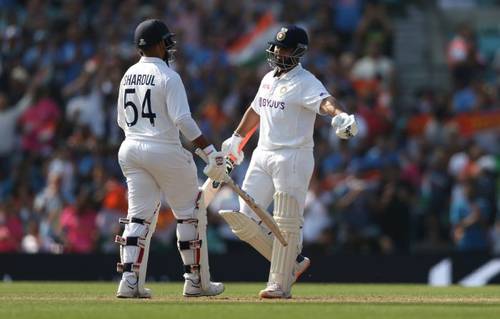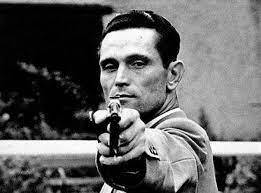Did you know that the world’s fastest man ate chicken nuggets before his iconic win at the Beijing Olympics? Or the fact that he’s a fan of Manchester United and even wanted to play for the club at one point? As the epitome of persistence, perfection and perseverance, Usain Bolt will go down in sporting history as one of its most unforgettable icons.
Born on the 21st of August, 1986 to Wellesley and Jennifer Bolt, he grew up alongside his brother Sadiki, and sister Sherine in a small town in Jamaica where his parents ran the local grocery store. Bolt spent a lot of his childhood on the streets playing cricket and football with his brother, and even played for his high school teams. In fact, his sport of choice was initially cricket. It was only during his time as a fast bowler that coach noticed his athletic talent and recommended that he should switch to athletics. He happily made the switch to track racing because of his love for sports. Those humble beginnings marked the start of his journey.
Representing Jamaica in his first Caribbean regional event, Bolt clocked a personal best time of 48.28s in the 400 metres category. Bolt also went on to earn himself a silver medal in the 200m event, as he finished in 21.81s. His first international appearance was later on at the IAAF World Youth Championships in Hungary. At this point, he was a distracted, mischievous young adult and unfortunately failed to qualify for the finals. His mischief led to him getting detained by the police over a practical joke. During this period, there was public outcry against his coach, McNeil.
By age 15, he had already grown to be 1.96 metres tall and physically stood out among his peers. At the 2002 World Junior championships before his home crowd in Kingston, Jamaica, Bolt’s 200-metre win made him the youngest world-junior gold medallist ever. Interestingly enough, the expectations from his home crowd had made him so nervous that he wore his shoes on the wrong feet. Fortunately, he realised the mistake soon before the race began. However, after that incident, he vowed that he would never be nervous prior to his races.
Bolt began his professional career in 2004, under his coach Fitz Coleman. At the CARIFTA games in Bermuda, he became the first junior sprinter to run the 200 m in under twenty seconds. Although a hamstring injury in May ruined his chances of competing in the 2004 World Championships, he was still chosen to represent the Jamaican Olympic squad. Unfortunately, due to a leg injury, Bolt was eliminated in the first round of the 2004 Athens Olympics.
Until then the 200 metres sprint had been Bolt’s primary event, however, Bolt’s new coach Glen Mills complied with Bolt’s request to run the 100 metres event. In his debut tournament, he won the gold medal with a time of 10.03s, which only fuelled his passion for the event further. He built on this achievement at the 2007 World Championships in Osaka, Japan, winning a silver medal.
Bolt went against all odds and achieved this while suffering from a form of scoliosis; having his spinal curvature greater than 40 degrees didn’t slow him down. While a 200 metres sprinter shifting seamlessly to 100 metres is unprecedented, the fact that Bolt made this transition with this condition is something even more remarkable.
In the 2008 Beijing Olympics’ 100 m finals, Bolt broke new ground, winning gold in a mere 9.69 seconds. This was not only an improvement upon his previous world record, but the record was set despite him visibly slowing down to celebrate even before he finished, and all this with his shoelace untied during the race. At the 2012 London Olympics, he won the 100 metres gold medal with a time of 9.63 seconds, improving upon his Olympic record. Bolt followed this up with the successful defence of his 200 metres title with a time of 19.32 seconds, thus becoming the first man in history to defend both the 100m and 200m Olympic sprint titles.
Yet again at the 2016 Rio Olympics, Bolt reclaimed both the 100 metres and 200 metres gold with times of 9.81 seconds and 19.78 seconds respectively. With his final gold medal in the 4x100 metres relay, Bolt had accomplished the ‘triple three’, winning three gold medals at three consecutive Olympics. The sprinter finally retired after the 2017 World Championships, where his final event saw him pull up at the last 50 metres with a hamstring injury. To date, he holds the world record for the fastest 100m sprint at 9.58 seconds, which he set at the Berlin World Championships in 2009.
While his heroics are greatly missed at the 2020 Tokyo Olympics, Bolt will forever be etched in the mind of every budding sprinter and sportsperson on the planet, for he truly stands at the pinnacle of legends. So, what’s his secret to success? As you should have figured by now, Bolt’s secret to success is nothing but himself, for he is someone simply unmatchable.





